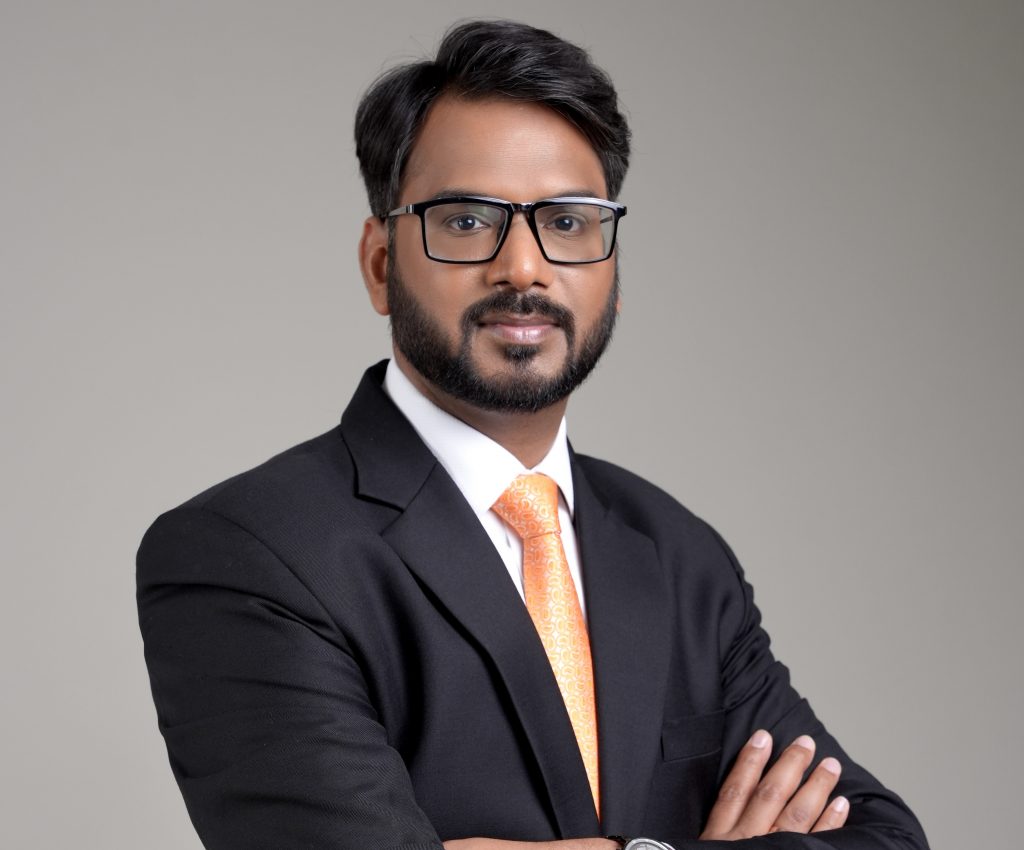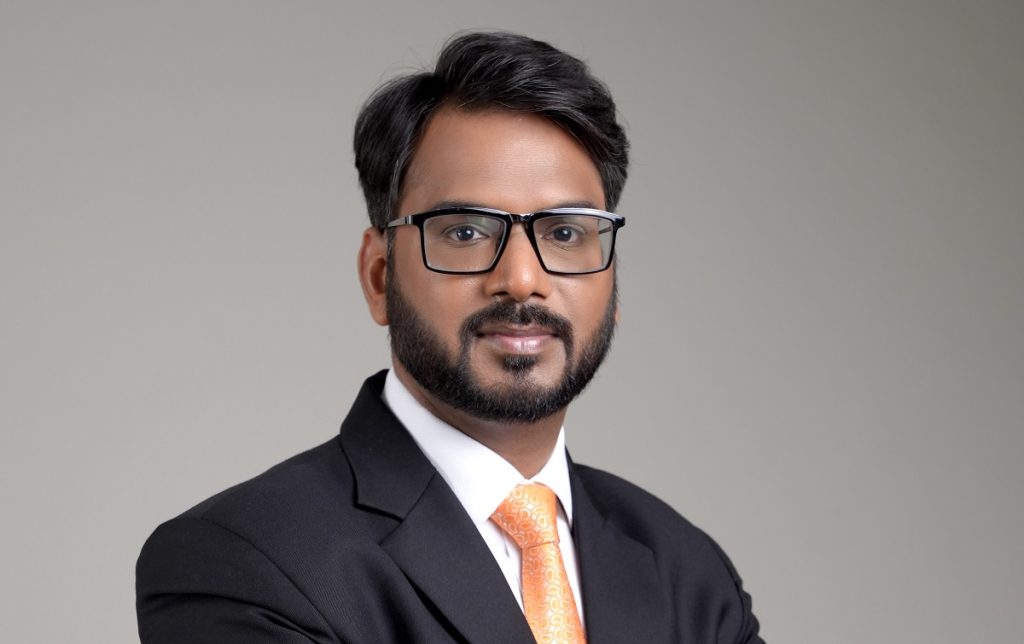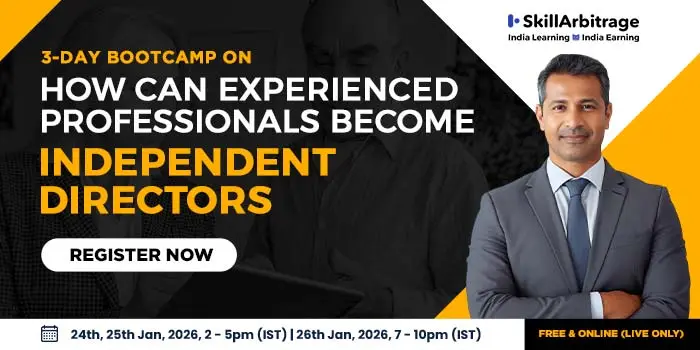This interview has been published by Anshi Mudgal and The SuperLawyer Team

With over 15 years of experience in Corporate Law and Litigation Management, how have you observed the evolution of India’s corporate legal landscape, particularly with the emergence of tech-driven businesses?
Thank you for the question. Over the past 15 years, I’ve witnessed a remarkable transformation in India’s corporate legal landscape.
In the earlier years, the focus for most corporates was largely on traditional compliance company law filings, ROC, SEBI regulations for listed entities, and occasional contract disputes. Litigation was also relatively straightforward, often revolving around shareholder disputes or debt recovery.
However, with the emergence of tech-driven businesses be it startups, e-commerce platforms, fintech, or now even Web3 and blockchain ventures the ecosystem has evolved dramatically. We’re seeing much more dynamic areas of law now shaping up, such as data privacy, cyber security, intellectual property monetization, intermediary liabilities, and cross-border tax structuring.
At the same time, the courts and regulatory bodies have also come a long way. There’s been a sharper emphasis on codifying norms, like the introduction of the IBC, the data protection regime that’s taking shape, and robust SEBI frameworks for tech IPOs. The judiciary, too, has embraced digital filings, virtual hearings, and has shown more readiness to adapt to the business exigencies of tech companies.
From a litigation management standpoint, disputes have become more complex, involving intricate shareholder agreements, IP enforcement, regulatory investigations, or even white-collar compliance matters. We now often have to advise clients not just on ‘law’, but also on risk mitigation strategies involving technology platforms and data footprints.
In short, the evolution has been from a largely form-driven, compliance-heavy environment to a more nuanced, strategy-focused, tech-sensitive legal landscape. And as practitioners, we’ve had to upgrade continuously whether it’s understanding how smart contracts work or guiding clients on digital evidence and cybersecurity incident responses.
What initially inspired you to pursue a career in law and how has your background as a Company Secretary strengthened your legal practice particularly in the areas of corporate governance and compliance?
Right from the initial stage of my career, I was drawn to how law shapes businesses and society. The idea of using legal knowledge to solve complex strategic problems and enable organizations to grow responsibly truly inspired me.
My background as a Company Secretary has been a huge advantage. It has given me a deep, practical grounding in corporate governance, statutory compliance, and regulatory frameworks. So when I handle litigation or advisory matters, I don’t just look at them as disputes or transactions, but also ensure they align with sound governance and compliance practices.
This dual perspective helps clients not only tackle immediate legal issues but also build stronger, compliant businesses in the long run.
What inspired your involvement in POSH awareness, and how do you approach training with sensitivity and impact? Additionally, what are the major challenges you have to deal with while spreading awareness relating to POSH?
I’ve always believed that a truly successful workplace is not just legally compliant, but also safe and respectful for everyone. That’s what inspired my involvement in POSH awareness. It’s an area where legal compliance directly shapes people’s everyday dignity and confidence at work.
When I conduct POSH training, I approach them with a lot of empathy and practical examples. It’s important to go beyond the text of the law and address real scenarios, bust myths, and encourage open dialogue so participants genuinely understand the spirit behind the Act.
One major challenge is overcoming the hesitation or awkwardness people often feel around this topic. Many fear it’s only about punishment or blame. So, I focus on normalizing conversations about respectful behavior, clarifying rights and responsibilities, and building trust, which ultimately help foster a healthier work culture.
In your experience in handling Cybercrime and Intellectual Property disputes, what are some of the most critical risks businesses face today, and how can they establish strong preventive frameworks?
From my experience with cybercrime and IP disputes, two of the biggest risks businesses face today are data breaches which can expose sensitive customer or trade data and infringement issues, especially with brands and digital content being copied or misused online.
Cyber risks have grown with increased digitization, remote work, and online data space dependency. Similarly, with global markets and e-commerce, protecting trademarks, software, and proprietary content is now far more complex.
To build a strong preventive framework, I always advise businesses to invest in robust data security policies, regular employee training on phishing and cyber security hygiene, and to have clear incident response plans. On the IP side, timely registrations, vigilant monitoring for infringements and well-drafted contracts covering ownership and licensing rights are critical.
In short, prevention is far more cost-effective than crisis management, whether it’s through internal audits, tech safeguards, or proactive IP protection.
You’ve led several compliance audits and risk mitigation initiatives. What are some common legal oversights organizations tend to make that could lead to long-term liabilities?
A few common oversights I’ve seen repeatedly are:
- Lack of proper executed contracts or poor drafting which does not cover some very critical areas which often leads to litigation at later stage
- Not updating statutory registers, policies, or board resolutions in line with evolving laws which creates gaps visible during due diligence.
- Overlooking related party transactions and not maintaining proper documentation, this can lead to serious regulatory scrutiny.
- Failing to robustly implement POSH or data privacy norms, treating them as formality rather than embedding them into workplace practices, this often surfaces later as litigation or reputational damage.
Ultimately, many organizations focus heavily on firefighting current issues but don’t invest in building a strong compliance culture. That’s where long-term liabilities quietly accumulate. Through audits and risk reviews, my aim has been to identify these blind spots early, so they can plug gaps before they escalate into major exposures
Reflecting on your early career experiences across various companies, which lessons or moments significantly shaped your legal perspective and continue to influence your practice today?
In my early years working across different companies, one lesson that stayed with me is how critical it is to understand the business first, not just the law. I saw situations where technically perfect compliance still failed because it didn’t fit the commercial realities or missed the human aspect.
Another defining moment was handling my first complex board dispute. It taught me that beyond statutes and contracts, corporate law is often about managing relationships, trust, and strategic communication.
These experiences shaped my approach today: I try to be a solution-oriented advisor who aligns legal strategies with the client’s larger business goals, while always being mindful of governance and long-term risks
As someone committed to both legal reform and social justice, what are your long-term aspirations for your firm and your role in the legal profession?
My long-term vision is to build a practice that’s not just known for strong technical expertise, but also for driving meaningful impact whether that’s through shaping better compliance cultures in companies, supporting alternate dispute resolution to ease systemic burdens, or contributing to causes like workplace dignity through POSH awareness.
For me personally, it’s also about mentoring the next generation of professionals, fostering an environment where ethical, business-focused, and socially conscious lawyering becomes the norm.
Ultimately, I’d like our firm to be seen as a trusted partner that helps businesses grow responsibly while also championing legal reforms and social justice initiatives that make workplaces and markets fairer and more transparent
Having established a firm that offers litigation support across the country, what were the key challenges in building such an extensive associate network? How do you manage the demands of leadership while maintaining personal well-being?
- Building a pan-India associate network came with its own challenges ensuring consistency in quality across different jurisdictions, aligning varied local practices with our firm’s standards, and cultivating trust so associates truly function as an extended part of our team.
- It required a lot of groundwork: clear processes, regular communication, and investing time in relationships beyond transactions.
- As for balancing leadership demands with personal well-being, I’ve learned to prioritize delegation and build capable teams who take ownership. I also set aside time for short breaks and personal pursuits which actually makes me more effective and present when I’m back at work.
- Ultimately, I see leadership not just as driving results, but creating an environment where both the team and I can grow sustainably.
Get in touch with Nitin Goyal –




